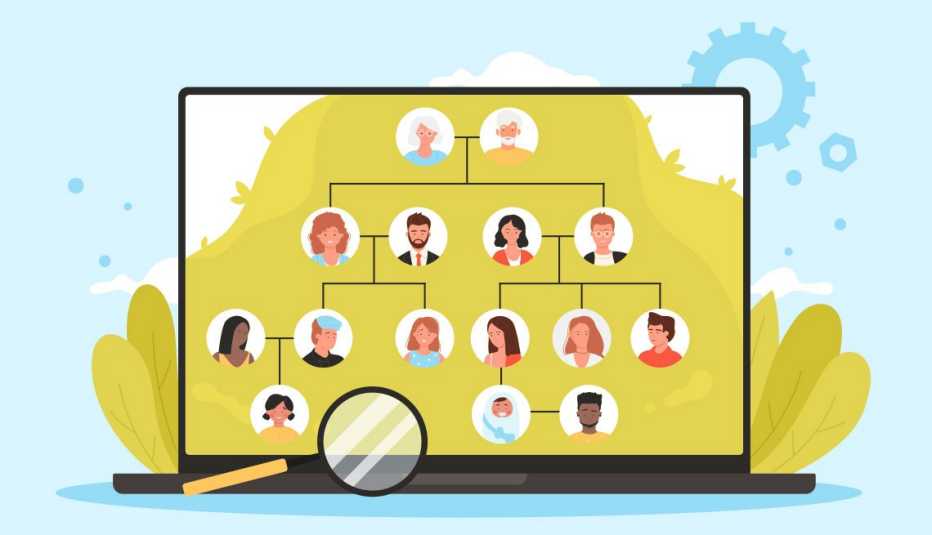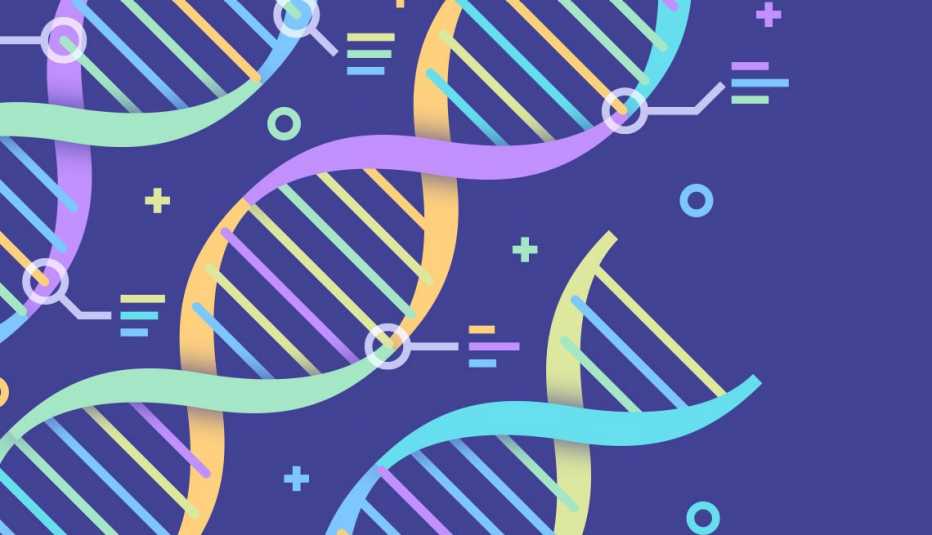AARP Hearing Center


If you’re putting together a family tree, curious about your ethnic roots or uncovering potential inherited diseases, submitting DNA samples can help you discover more about yourself.
In January 2025, more than 1 in 5 Americans said they had taken a mail-in DNA test, and 27 percent said a close family member such as a parent, sibling or child had taken one, according to a YouGov survey of nearly 1,200 U.S. citizens, the most recent survey on the topic.
By 2020, more than 30 million people globally had “started a DNA journey,” Ancestry’s then-chief executive, Margo Georgiadis, revealed in a blog post. Yet for all the possible rewards, is the journey safe?
For starters, make sure you’re ready for what you may learn. Families have discovered unpleasant surprises, such as a living or deceased sibling Mom or Dad never mentioned.
Moreover, spitting saliva into a tube or even volunteering ancestral details to fill in gaps about your family’s past and present without surrendering any DNA carries inherent risks, some privacy advocates say.
Con artists look for vulnerabilities in websites
The point was driven home March 23 when genetic testing company 23andMe filed for Chapter 11 bankruptcy protection and co-founder Anne Wojcicki resigned as chief executive. Wojcicki remains on 23andMe’s board of directors and in a post on X, formerly Twitter, announced her intention to bid for the company as it seeks to reorganize under federal court approval.
Beyond recurring business struggles, security concerns have dogged 23andMe for some time and raised consumer questions about the safety of DNA testing overall.
In October 2023, a hacker leaked user data stolen from 23andMe onto an online forum. At that time, 23andMe said the criminal had been able to access just 0.1 percent of accounts — fewer than 14,000 — where usernames and passwords were the same as those on other compromised websites.
But two months later, the company disclosed that the hacker had accessed the profile data of 6.9 million users, roughly half the 23andMe customer base.
Leaked profile data appeared to target Ashkenazi Jews and people of Chinese descent. It contained display names, how recently the users had logged in to their accounts, predicted relationships and the percentage of DNA shared with close matches.
In some instances, it also included birth year, location, links to family trees, profile pictures and other photos. Data apparently was culled from an optional DNA Relatives feature that may help users identify genetic relatives by comparing autosomal chromosomes, the name for humans’ 22 pairs of chromosomes other than the one that determines a person’s biological sex.
As part of its investigation, 23andMe — Israeli internet analytics company Similarweb says that as of March 1 it was the fifth-most-visited ancestry and genealogy site worldwide — disabled and subsequently brought back some DNA Relatives features. Customers were instructed to reset their passwords, and 23andMe now requires all users to employ two-factor authentication to prove they are who they say they are.
This past February, a $30 million class action settlement related to the data breach received preliminary approval. Amid 23andMe’s “reported financial distress,” California Attorney General Rob Bonta urged customers Friday to “delete their data and destroy any samples of genetic material held by the company.”







































































More From AARP
Another Darn Breach? How to Protect Your Personal Data
Your information is likely out on the dark web, but you can still take steps to minimize risk
Cyberhack Exposes Data on 600,000-plus Medicare Beneficiaries
The breach has put Social Security, driver's license and other personally identifiable information at risk
Free Smartphone Apps Can Have Hidden Privacy Risks
Often you ‘pay’ through sharing data online or other information gathering
Recommended for You